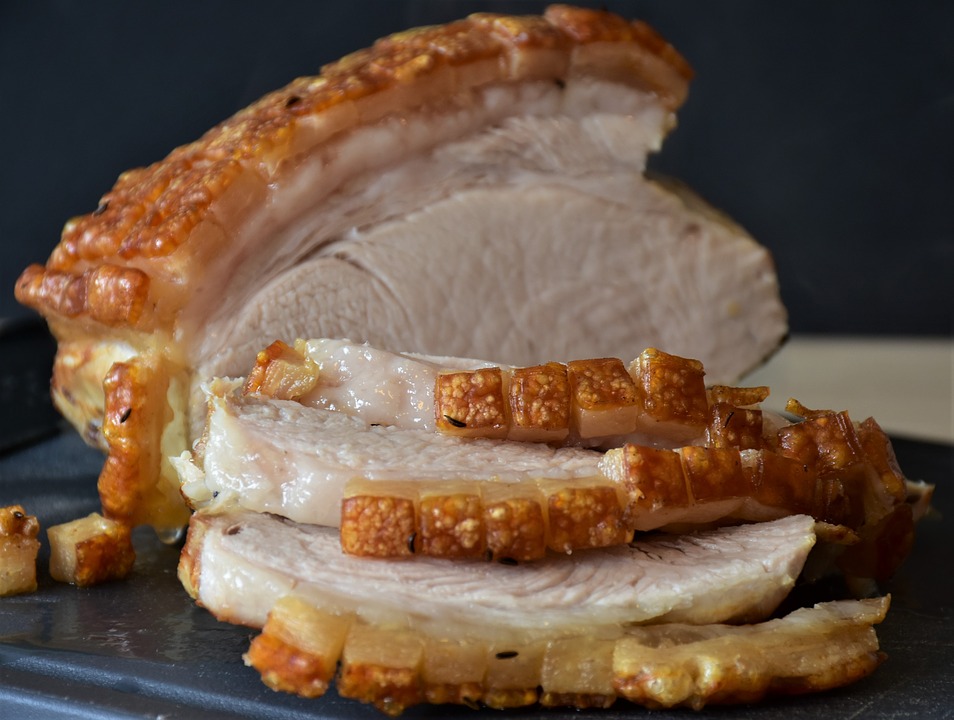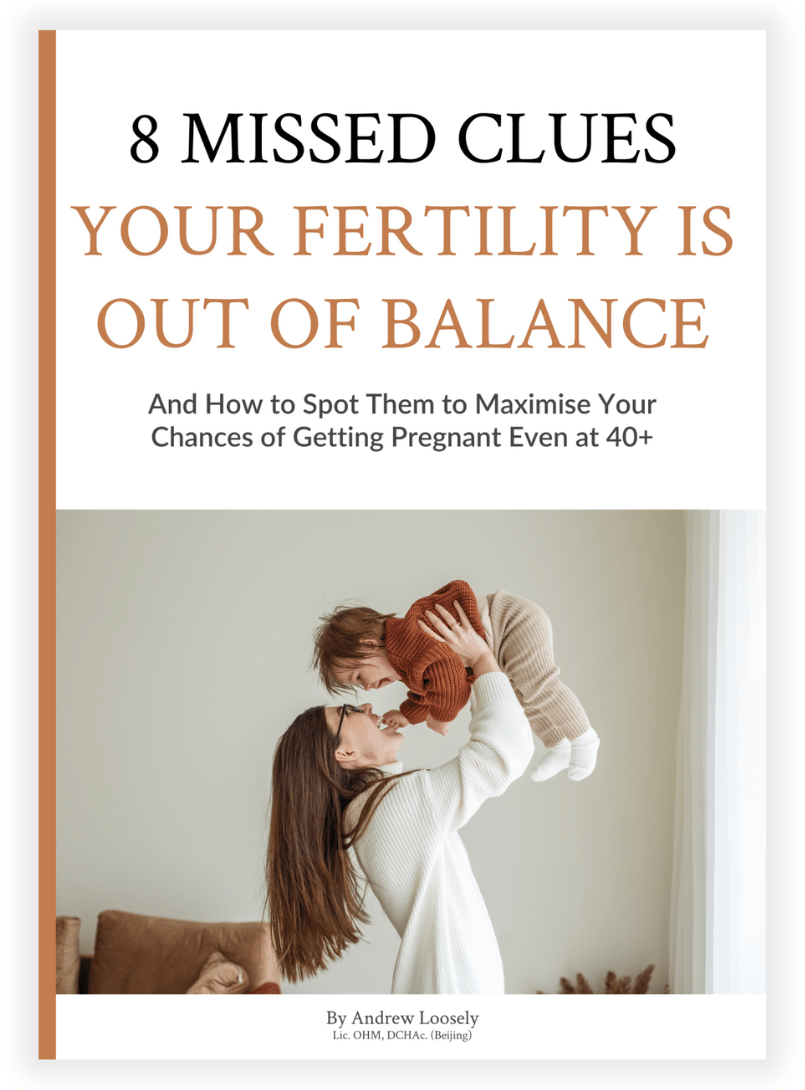Is pork good or bad for health?

The debate about pork continues.
However, many cultures have successfully survived for thousands of years on some form of the pig – whether wild or farmed.
Interestingly most traditional cultures have a method of preparation before they cook the pork, which they believe increases its positive effect on health. Non-prepared pork is not eaten in many traditional cultures as it’s deemed unhealthy.
In many parts of Asia, pork is marinated in vinegar or other acidic juices (such as lemon) before being cooked.
In Europe pork is cured with salt and other herbs and spices and either consumed once cured (after a time period), or it’s smoked to further preserve it and add more flavour.
There’s some interesting work that was carried out in a trial using live blood cell analysis, which showed that untreated pork causes blood cells to stick together. This negatively affects blood circulation, and in sensitive individuals may lead to other health issues.
But. When the meat was marinated in lemon juice or vinegar, or it was cured (as mentioned above), it did not create the same result. The live blood analysis showed that the blood was not negatively affected by the marinated pork.
The conclusion?
A 100g portion of pork contains 51% of your daily protein requirement, which makes it a great source of energy.
Eat pork as and when you like – BUT – marinade it the day before in a vinegar or lemon juice marinade. Cured pork meats such as bacon, prosciutto, cured ham etc are also fine to eat and had no adverse effect on blood health in the trial mentioned above.
Key nutrients of Pork are:
Vitamin A: Is necessary for the growth and repair of many body cells including bones, teeth, collagen and cartilage. It’s also involved in cell differentiation where cells become specific types of cells such as a liver cell or a blood cell. This is vital for the development of your healthy baby. Supplementation does not offer balanced forms of Vitamin A.
Vitamin B1: Thiamin is involved in the production of energy through the breakdown of sugars and carbohydrates. This is important for cellular health, which may also influence the health and energy of sperm and egg cells. It’s also important for energy support during pregnancy.
Vitamin B2: Research shows that Riboflavin can act as an antioxidant, which helps to combat against harmful free radicals. Free radicals are known to negatively impact sperm and egg health, and so antioxidants are a vital part of the human diet.
Vitamin B6: Pyridoxine is involved in breaking many types of chemical bonds and is a component of many enzymes – which are involved in breaking down foods and substances, and also regulating steroid hormones.
Vitamin B12: Aiding in the production of DNA, RNA, and neurotransmitters, Cobalamin is a really important nutrient for developing healthy eggs and sperm – and also for your babies’ future health development.
Vitamin C: For fertility health Vitamin C is important in the process of absorption and also in its ability to support the luteal phase of the menstrual cycle.
Vitamin E: Vitamin E is an antioxidant that helps protect cells against damage caused by free radicals. This nutrient is really helpful in protecting sperm and egg cells from free radical damage, which can damage the DNA of the cell and may lead to morphology issues – in sperm and eggs.
Copper: Copper is essential for overall health and is involved in many processes in the body. It cannot be produced by the body and must therefore be consumed through food. Copper helps maintain healthy bones, blood vessels, nerves, and immune function, and it contributes to iron absorption.
Iron: Is a mineral that the body uses to carry oxygen in the blood and plays a key role in strengthening the immune system and helps regulate body temperature.
Magnesium: Supports a healthy immune system as well as keeps bones strong. It is also great for stress, and combined with vitamin B6 can help induce sleep and alleviate symptoms of bloating and weight gain associated with PMS.
Potassium: Is an electrolyte which counteracts the effects of sodium, helping to maintain consistent blood pressure levels – another important element for pregnancy.
Phosphorus: Is an element that plays an important role in how the body uses carbohydrates and fats. It is also needed for the body to make protein for the growth, maintenance, and repair of cells and tissues. It is essential in our diet and particularly in children when growth and development occurs.
Selenium: is one component of antioxidant enzymes and is also used by the body to help support thyroid health, particularly conversion of thyroid hormones from one to the other. This can help support your thyroid health, which is fundamental for fertility health and pregnancy.
Zinc: Zinc is essential for the repair and function of DNA, which affects sperm and egg quality. It’s also essential for the rapid growth of cells and the building of major parts of cells during a pregnancy. The development and enzyme activity that takes place during pregnancy is supported by zinc, which means that this is one of the most important nutrients for babies and mothers.
Sodium: helps with the regulation of blood pressure and volume, and fluid maintenance, to ensure you have enough fluid around your cells. This is important for the health of all cells including egg and sperm cells.
CHINESE FERTILITY MEDICINE USE IT TO:>
- Treat Yin Deficiency
- Treat Qi Deficiency
- Blood Deficiency
- Help constipation
YIN DEFICIENCY
Yin Deficiency is a pattern of imbalance in Chinese Fertility Medicine that describes depleted fluid levels of the body.
This is not dehydration as such, but a deep and longer term type of fluid deficiency or dryness of the tissues and cells.
Reduced fluid levels in the body interfere with temperature regulation, blood and fluid circulation, and delivery of nutrients and vital substances to your cells (including egg and sperm cells), tissues, and organs.
Click here to read more about Yin Deficiency
QI DEFICIENCY
Qi is the word used in Chinese Fertility Medicine to describe energy, life force, or vitality inside and outside the body.
Qi is the non-physical aspect of your body that makes all of your organs and systems work.
This means that it’s vital for the function of all aspects of your fertility, and pregnancy health too. When your Qi is deficient your body struggles to function efficiently, and this can lead to a variety of fertility issues.
When Qi becomes more severely deficient you will likely present with hormone imbalance, typically with reduced Progesterone, Testosterone and/or FSH levels. In some cases, the FSH can rise and present itself as being elevated, due to the ovaries or testes being underactive and sluggish (tired).
Due to its high protein and Thiamin content pork can help to support the healthy production of Qi.
Click here to read more about Qi Deficiency
BLOOD DEFICIENCY
Blood deficiency is a Chinese Fertility Medicine term used to describe an imbalance in the quality of the blood.
The blood is responsible for circulating nutrients throughout the body to all of your cells, including egg and sperm cells.
When it is deficient the blood can’t properly nourish the body and certain aspects of health get out of balance.
This can impact egg and sperm health as the deficient blood is unable to transport necessary nutrients to the eggs and sperm – causing a depletion in their quality, quantity, and activity.
If the Blood deficiency reaches a deeper level of imbalance you will see physiological changes in the blood, such as reduced iron, haemoglobin, ferritin, B-vitamins and other nutrients. You may also see changes in the volume and quantity of the blood cells and it’s clotting ability or nature.
Click here to read more about Blood Deficiency
Season Available: All year
How it’s typically cooked: Once marinated, pork can be stir-fried, boiled, grilled, BBQ’s, stewed, fried, baked or roasted and eaten with a variety of fresh vegetables. Eating some cooked fruit (such as apple) along with pork can increase your ability to digest the meat more easily.
Cautions: Use with caution if you suffer with retained fluids or have been diagnosed with ‘Dampness’ or Spleen Qi deficiency in Chinese Medicine.
Disclaimer: https://naturalfertilityexpert.com/disclaimer/
Need more help?

Free Guide
8 MISSED CLUES YOUR FERTILITY IS OUT OF BALANCE – even if you’re over 40
Discover What’s Stopping You Having Your Baby
8 MISSED CLUES YOUR FERTILITY IS OUT OF BALANCE – even if you’re over 40
If you’re 40 or over and pregnancy isn’t happening for you naturally, or with IVF, then this guide will help you discover why being 40+ isn’t a barrier to having a baby – as long as you identify the root cause of your fertility issues and then bring your body back into balance.